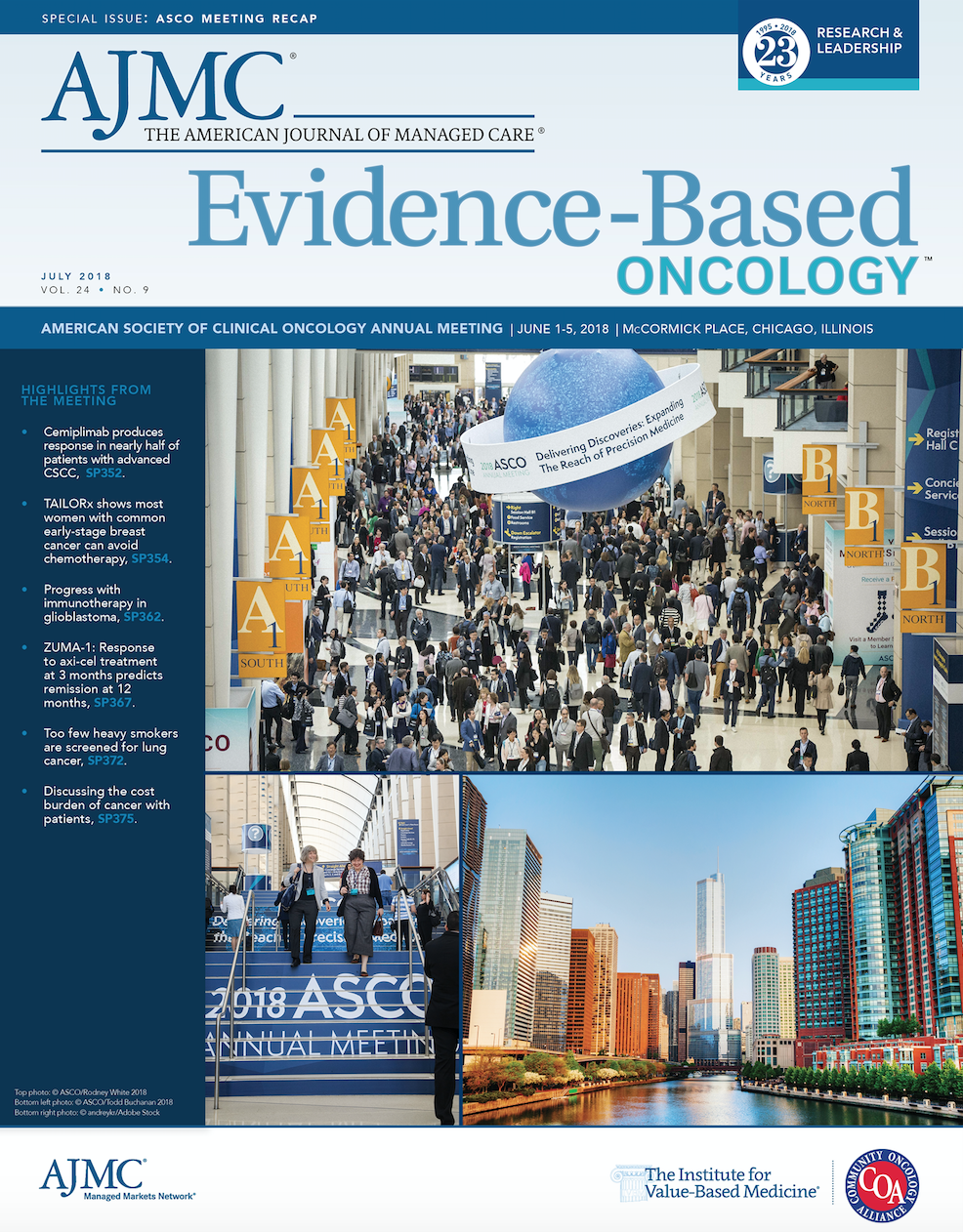- Center on Health Equity & Access
- Clinical
- Health Care Cost
- Health Care Delivery
- Insurance
- Policy
- Technology
- Value-Based Care
Robotic Surgery Complements Chemotherapy, Safer Than Radiation, in Oral Cancer
Results presented at the 2018 American Society of Clinical Oncology's Annual Meeting found that transoral robotic-assisted surgery (TORS), following chemotherapy and neck resections, is an effective model for the definitive treatment for oropharyngeal squamous cell carcinoma (OPSCC) while avoiding the adverse effects of radiation.
Transoral robotic-assisted surgery (TORS), following chemotherapy and neck resections, is an effective model for the definitive treatment for oropharyngeal squamous cell carcinoma (OPSCC) while avoiding the adverse effects of radiation. These results were presented at the 2018 American Society of Clinical Oncology Annual Meeting, June 1 to 5, in Chicago, Illinois.
According to the National Cancer Institute, incidence of oropharyngeal cancer has been on the rise in the United States, and the growing number of human papillomavirus (HPV) infections might be responsible. With over 50,000 cases estimated in 2018, oropharyngeal cancer is expected to lead to more than 10,000 deaths this year.
“The standard of care for OPSCC includes chemoradiation or surgery with adjuvant radiation,” said Robert S. Siegel, MD, George Washington University School of Medicine and Health Sciences, and a senior investigator for the study. He explained that while the treatments are successful 80% to 90% of the time in curing oropharyngeal cancer and 90% of the time in HPV oropharyngeal cancer, radiation treatment can be harsh and can significantly affect morbidity. Long-term effects of radiation treatment can include gum and dental disease, change in taste, difficulty with swallowing, and others.
“We therefore assessed the efficacy of a 2-drug induction regimen, followed by TORS and neck dissection for locally advanced OPSCC,” Siegel said.
Siegel said that with this treatment, the risk of distal disease is diminished and surgery is easier. “Additionally, TORS is more effective than older surgical techniques, with less tissue damage and quicker recovery,” he added.
The single-arm phase 2 study recruited treatment-naive stage III or IVA patients with a diagnosis of OPSCC who had an Eastern Cooperative Oncology Group score <2. The treatment plan included induction chemotherapy with cisplatin 75 mg/m2 and docetaxel 75 mg/m2 every 21 days for 3 cycles. Tumor shrinkage was examined after each cycle. If the primary tumor was ≥80% smaller, patients were scheduled for TORS and neck dissection(s). At postoperation visits, flexible laryngoscopy, blood tests, and imaging with positron emission tomography/computed tomography and/or magnetic resonance imaging were done.
The study outcomes that were evaluated included short- and long-term toxicities, progression-free survival, overall survival, and quality of life (QOL).
Of the 20 patients who met the inclusion criteria and were treated, 19 were male, 17 were Caucasian, and 19 were HPV-positive; median age at diagnosis was 57 years. Thirteen patients had a tumor in their tonsil and 7 at the base of their tongue. Three patients were stage III, and 17 were stage IVA.
The study found that tumor size was reduced by 53.4% after the first induction cycle, 80% after the second, and 90.5% after the third. Therefore, all patients were eligible for surgery, Siegel said. Pathologic complete response (CR) of the primary site occurred in 15 of the 20 patients, and CR among lymph node neck dissections occurred in 13 patients. CR was noted in 12 of 20 patients.
The pre- versus posttreatment QOL scores did not change much: Fourteen patients had very good to excellent QOL at baseline, while 15 patients had good to excellent QOL following treatment.
“At a mean follow-up of 22 months, 18 patients are alive and disease-free,” Siegel said. Three patients who had a recurrence an average of 2.2 months after surgery were treated with salvage chemoradiation therapy, he said. Two of three patients who had metastatic disease died, and all 3 had positive lymph node disease at surgery.
Siegel concluded by stating that induction chemotherapy with TORS and neck dissection can be an alternative for standard chemoradiation in patients who are HPV-positive. He recommends chemoradiation as an option for patients whose tumors do not shrink by 8% or more after induction chemotherapy and who have at least 1 lymph node positive for disease following surgery.REFERENCE
Siegel RS, Rafei H, Joshi A, et al. Phase II study: induction chemotherapy and transoral surgery as definitive treatment (Tx) for locally advanced oropharyngeal squamous cell carcinoma (OPSCC): a novel approach. J Clin Oncol. 2018;36(suppl; abstr 6004). http://abstracts.asco.org/214/Abst- View_214_230487.html.
Quality of Life: The Pending Outcome in Idiopathic Pulmonary Fibrosis
February 6th 2026Because evidence gaps in idiopathic pulmonary fibrosis research hinder demonstration of antifibrotic therapies’ impact on patient quality of life (QOL), integrating validated health-related QOL measures into trials is urgently needed.
Read More
Exploring Racial, Ethnic Disparities in Cancer Care Prior Authorization Decisions
October 24th 2024On this episode of Managed Care Cast, we're talking with the author of a study published in the October 2024 issue of The American Journal of Managed Care® that explored prior authorization decisions in cancer care by race and ethnicity for commercially insured patients.
Listen
Building Trust: Public Priorities for Health Care AI Labeling
January 27th 2026A Michigan-based deliberative study found strong public support for patient-informed artificial intelligence (AI) labeling in health care, emphasizing transparency, privacy, equity, and safety to build trust.
Read More


